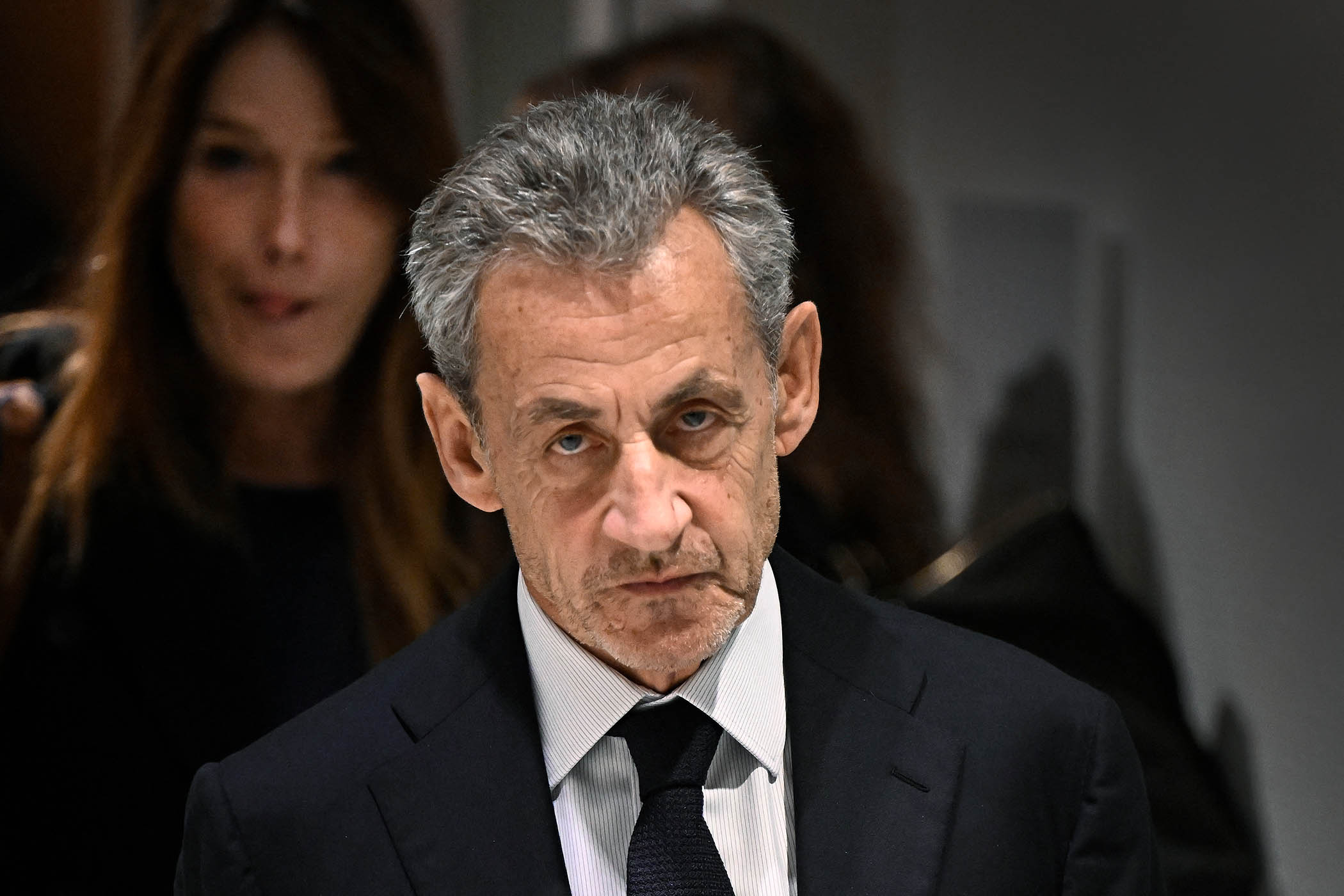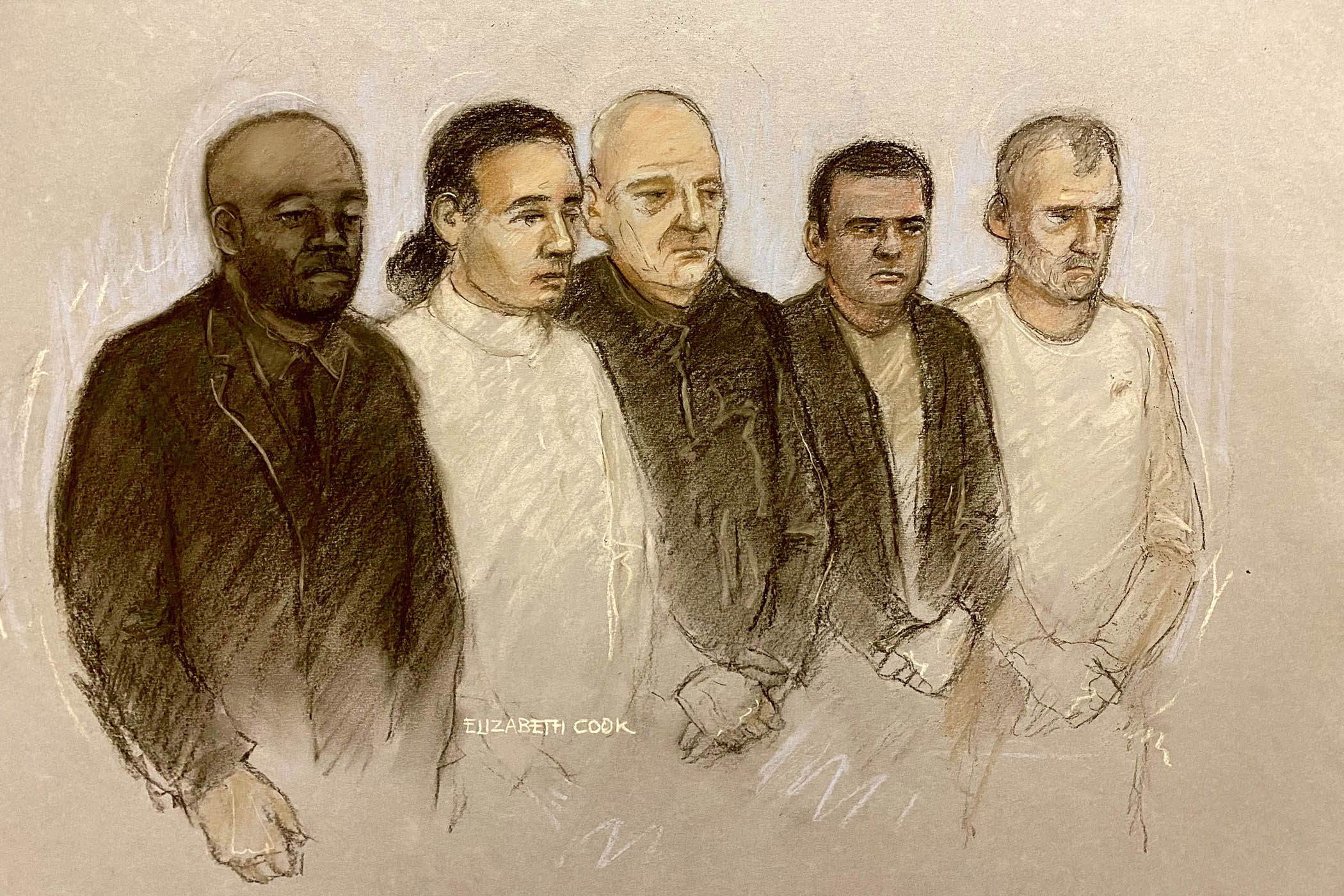A French court has convicted Nicolas Sarkozy of criminal conspiracy and sentenced him to five years in jail.
So what? Although officially retired from politics, Sarkozy, who was president of France for one term between 2007 and 2012, still wields political influence. His conviction
•
risks doing even more damage to public trust in French leaders;
•
has sparked accusations that his treatment was politically motivated; and
•
could see him become the first post-war French president to spend a night in a prison cell.
Political tsunami. In an unforeseen and historic judgement, a Paris court found Sarkozy guilty on Thursday of an attempted “corruption pact” with the regime of the late Libyan dictator Muammar Gaddafi.
How France got here. In 2005, while interior minister, Sarkozy and several senior aides were accused of making a secret deal with Gaddafi for millions in illegal funding for Sarkozy’s 2007 presidential campaign.
Quid pro quo. In return, prosecutors said the Libyan regime, marked by Gaddafi’s four-decade dictatorship, would be given legal, business and diplomatic favours. Gaddafi was allowed to pitch a Bedouin-style tent in gardens near the Élysée Palace during a state visit shortly after Sarkozy became president.
Related articles:
Fair weather friend. Any relationship proved short-lived. In 2011, when widespread protests rocked the Arab world and Gaddafi moved to quash the rebels, Sarkozy was among the loudest to call for Nato to intervene in Libya. Gaddafi was caught trying to flee and killed.
Who blabbed. Gaddafi’s son Saif al-Islam accused Sarkozy of taking millions of his father's money for campaign funding. A Lebanese middle-man also claimed he had written proof that Sarkozy's 2007 campaign was “abundantly” financed by Tripoli.
The messenger. French investigative website Mediapart picked up the campaign financing claims in 2012. Sarkozy sued Mediapart for defamation but lost.
Crime. The court acquitted Sarkozy on corruption charges but ruled that even though it could not determine if Tripoli ever paid the campaign money, it was still a corrupt scheme and a crime under French law.
Punishment. In an unusual ruling, the judge ordered Sarkozy must serve his sentence even if he appeals. Sentences are usually suspended until the appeal process is exhausted. This can take years.
The judge said that the facts of the case were of “exceptional gravity” and “likely to undermine citizens’ trust”.
Sarkozy said: “I am innocent.”
By the numbers:
•
€50m: the amount of alleged campaign funding in the Gaddafi deal.
•
€21m: the official cost of Sarkozy’s 2007 presidential campaign and maximum spend allowed.
•
€100,000: the fine the court imposed on Sarkozy.
Repeat offender. Sarkozy has faced multiple criminal charges since leaving office. He has denied all of them. This was his third conviction.
Family affair. Last year Sarkozy’s Italian-born wife Carla Bruni-Sarkozy was charged with hiding evidence linked to the Gaddafi case and “associating with wrongdoers” to commit fraud, accusations she denies. Several of Sarkozy’s high-profile aides were convicted on Thursday.
Who cares? The former president’s advice is still sought. He recently met Sébastien Lecornu, the country’s new prime minister and seventh in eight years, who is struggling to form a government. Sarkozy also met Jordan Bardella, leader of the far-right National Rally party, over the summer.
Fueling the fire. The verdict is likely to confirm widespread distrust in France’s politicians. An annual poll published in December found that 74 per cent to 86 per cent of people had little or no confidence in their political parties, their MPs, the National Assembly or the president.
Making hay. It also pours more fuel on the country’s fractious politics. National Rally leader Marine Le Pen, who was convicted in March of helping to embezzle EU funds, suggested the ruling was politically motivated. The judge received death threats within hours of sentencing Sarkozy.
Doing time. The last French head of state to see the inside of a prison cell was Marshal Philippe Pétain, head of the Vichy government, which collaborated with the Nazis.
Straight to jail… Not exactly. Sarkozy will be told when and where he will go to prison on 13 October. Until then, he remains free.


